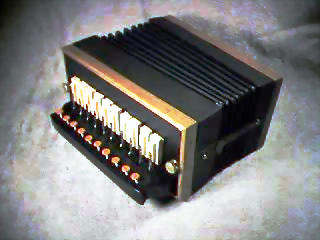
The button box.

The button box is made from various soft woods, cardboard and leather. It is built in a style reminiscient of inexpensive instruments at the turn of the last century. Though not considered professional quality construction, button boxes made in this manner survive as playable instruments to this day.
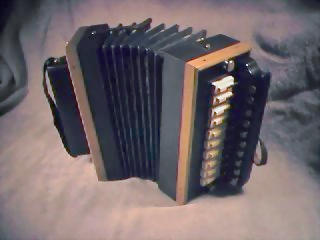
The button box is constructed in 3 sections. The front plate containing the buttons (keys), reeds and stops, The bellows and finally the rear plate which usually houses 2 or 3 'chord' buttons and a breather button that allowed air in or out of the bellows (without having to play a note).
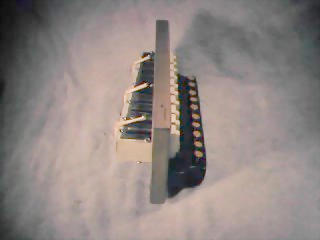
The reads were salvaged from an old button box purchased at a yard sale. There are actually two sets of musette tuned reeds. Musette tuning is accomplished by cutting both sets of reeds to the same notes (unison). Because the reed pairs can never be tuned exactly the same, a rich 'chorused' effect results. Alternatively, a cajun accordion would add an extra reed bany one octave above the musette pair and another an octave below, giving a total of 4 reed sets (or banks). A cajun accordion also provides a set of 4 controls (stops) to selectively turn each reed bank on or off.
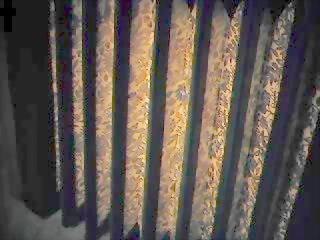
The bellows are made from heavy, durable cardboard with each fold reinforced by cloth tape. To allow proper flexing, the corners are made with thin glove leather. Finally, the bellows is covered in a decorative paper and bellows tape. Hand construction of this type of bellows is very time consuming.
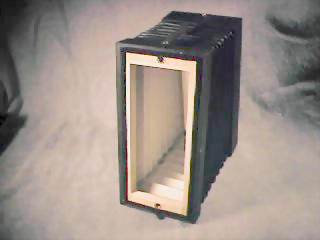
The finished bellows assembly is mounted to cloth covered wooden frames which act as mount points for the front and rear plates.
Jim Varnum, November 2001